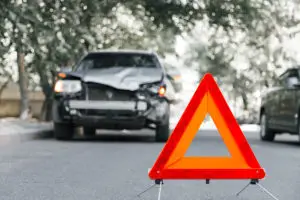
Essential Steps to Take
Motorists and their passengers may walk away from a collision with only scrapes, bruises, or bumps. However, in some cases, accidents cause injuries or worse, that demand emergency care or long-term treatment for physical wounds or emotional trauma.
Every injury represents a real person who may struggle with life-changing consequences or crushing hospital bills. According to the National Safety Council, individuals injured in auto collisions in one recent year incurred out-of-pocket costs and losses of almost $446 billion.
If you suffer injuries in a motor vehicle crash, taking prompt action may help protect your physical and financial health.


Expect More, Receive More: Legal Support That Feels Like Family
What Should Be Your Top Priority After an Auto Accident?
In the immediate aftermath of a collision, you may need a moment to process what happened. You may feel dazed and confused, or you may feel a surge of adrenaline. In any event, your first priority should be a focus on safety.
Take a moment to check for injuries that you or your passengers may have suffered. If you suspect any injuries, call 911 to summon an ambulance. For apparent neck or back issues, you should encourage the injured person to stay calm and still while you wait for the ambulance to arrive.
Forbes reminds drivers to care for passengers who can’t care for themselves. As you are dealing with the accident, do not leave children, adults with special needs, or pets alone in a hot car. If your children are in car seats, keep them in their seats until medical help arrives to evaluate them for injuries.
Next Steps After You Check for Injuries
The American Automobile Association suggests that if your car is drivable and there are no injuries, you should try to move your car to a safe spot on the side of the road. You may move to an emergency lane. You should turn on your hazard lights and stay out of traffic while you sort out details or wait for help.
You will likely want to call the police even if you believe the accident did not result in serious injury or material damage to your car or other property. Law enforcement involvement is critical if you suspect an intoxicated driver caused the crash or you feel threatened by another driver.
If you do not call the police to the scene, you should promptly file an accident report. Having a police report may prove useful when the time comes to make an insurance claim. Whether or not you call authorities, do not engage in conversation with other drivers involved in the collision. You should exchange basic contact and insurance information, but do not offer apologies or excuses. Avoid telling other parties that you feel fine. Any statements you make at the scene may undermine a claim when insurance companies get involved.
Be Your Own Detective
You may find that you are your own best accident investigator. Check your vehicle for damage, and use your phone to take photos. Also, look around and take notes or photos of the other driver’s vehicle, the accident scene, and other property damage. Record the time of the incident and weather conditions. Were conditions clear and dry when the other driver sped through the red light? Did sun glare temporarily blind a driver?
You will want to get the name and contact information of individuals who may have witnessed the crash. Jot down the names of local businesses with security cameras that may have captured the collision.
Cooperate With Your Insurance Company, But Not Other Insurers
You will need to contact your insurance company to report the accident and start the claims process. You may also hear from companies that insure other drivers involved in the collision. These companies may ask you pointed questions about the accident or ask you to make a recorded statement with your version of events. Limit your communications to your own insurer, and do not talk to others.
Insurance companies will try to get you to commit to a version of the incident that may not serve you, or they may suggest a settlement that would inadequately compensate you for injuries or damage. Do not rush to agree to a settlement that may not cover all your losses.
Keep Track of Your Expenses, Losses, and Damages
Set up a good tracking system for all expenses you incur because of your accident. Collect bills for any ambulance trips, hospital stays, surgeries, doctors’ visits, physical therapy treatments, chiropractic visits, and prescriptions. Some injuries may not reveal themselves immediately, so stay vigilant in the days and weeks after the incident.
The National Law Review explains that injuries such as concussions, whiplash, internal bleeding, or slipped disks may exhibit delayed symptoms. In addition, you may not immediately realize the long-term emotional or mental consequences of a car crash. You may seek counseling or therapy for anxiety, depression, sleep disruptions, or post-traumatic stress. Costs for counseling or therapy services may add up over time.
Your car may require major repairs, and you may have expenses for a rental car, rideshare trips, or public transportation while your vehicle is in the shop. You may need to buy a replacement if repair costs exceed the value of your damaged car.
Your injuries may keep you from working, and you may miss out on paychecks while you recover. If so, keep track of the earnings you lose.
Beyond out-of-pocket expenses, you may experience pain and suffering or other losses that impact your quality of life. While you may not know how to assign a dollar amount to these losses, they have a measurable impact on you and your family. Keep a journal to note how the crash has affected your life.
A car accident lawyer can help you understand the options you have to quantify and recover a fair measure of economic and non-economic damages. You want to act promptly to consult an attorney, as a statute of limitations may require that you file a claim against another driver or insurance company within a certain deadline to preserve your right to compensation.






